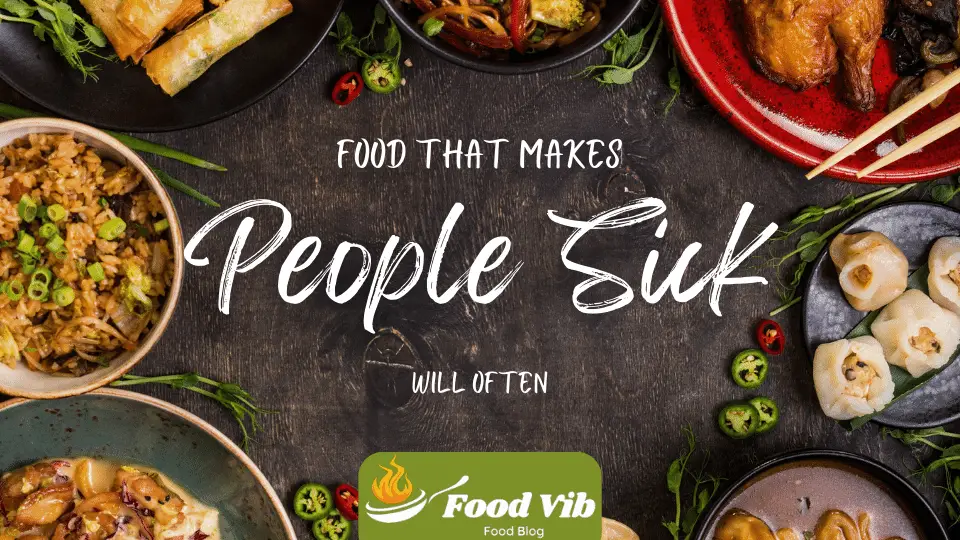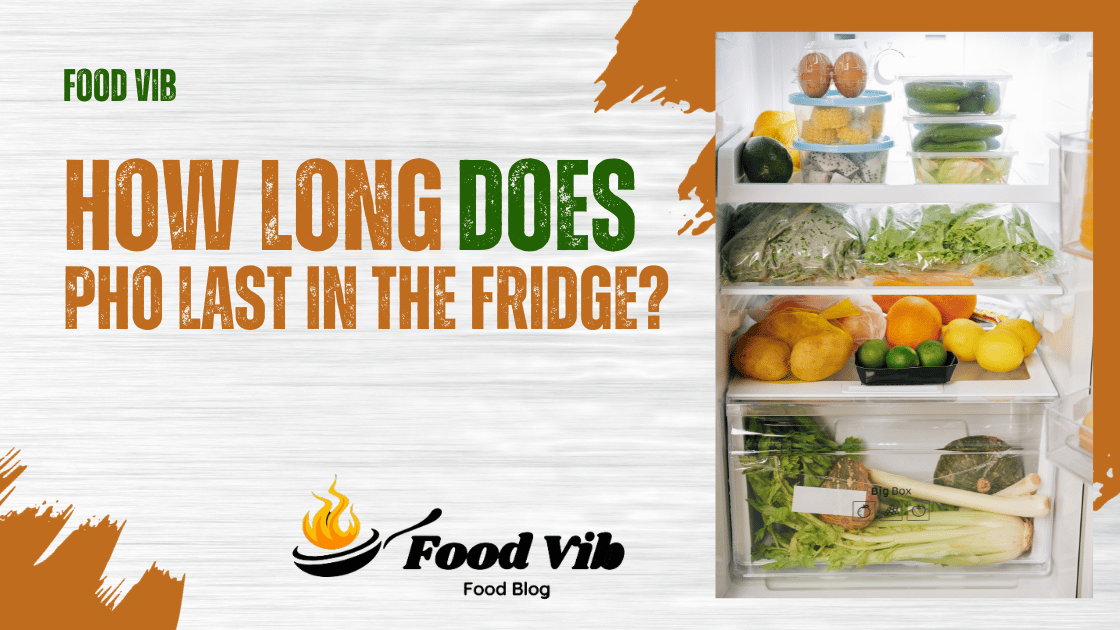Best Comfort Food When You’re Sick

When you’re feeling under the weather, comfort food may give you a much-needed source of nutrients and warmth. Opting for readily digested, calming foods is vital to delivering relaxation and boosting recuperation. Classic selections like chicken soup, with its nourishing broth and delicate aromas, are recognized for their calming features and ability to soothe symptoms of sickness.
Additionally, simple rice or congee helps ease an upset stomach while delivering needed carbs for energy. For a boost of vitamins and minerals, choose vegetable broth-based soups or plain steamed veggies. And don’t forget about the effectiveness of warm herbal teas or a cup of hot ginger tea to relieve a sore throat or reduce nausea. Ultimately, the ideal comfort food, while you’re ill, is whatever feels soft on your stomach and delivers a feeling of warmth and sustenance to help you feel better fast.

Best Comfort Food When You’re Sick
Comfort foods become more than simply a gastronomic treat when sickness hits; they become a source of consolation and relief. A cold, a virus, or even a difficult workday may all be remedied by eating particular foods, which have the enchanted power to calm the body and the mind. We go into the realm of comfort foods in this extensive guide, examining the finest alternatives to reach for when you’re feeling under the weather.
1. Chicken Noodle Soup: An Everlasting Favorite
A list of comfort foods would not be complete without including chicken noodle soup, the classic cure for the common cold. This traditional meal has therapeutic qualities that may help clear congestion and ease sore throats in addition to offering warmth and food. A warm cup of chicken noodle soup, full of delicate chicken, hearty noodles, and nutrient-rich vegetables, is like a hug from the inside out.
2. Macaroni & Cheese: The Perfect Comfort Delight
Few dishes can compare to the classic appeal of macaroni and cheese when it comes to comfort foods. Even on the worst days, this childhood favorite—creamy, cheesy, and oh-so-indulgent—can instantly make you feel better and happier. Macaroni and cheese is a comfort food that will fulfill your appetites and uplift your mood, regardless of whether you choose a traditional recipe or get creative with upscale additions like bacon or truffle oil.
3. Tomato soup and grilled cheese are a match made in comfort food heaven.
The combination of a steaming hot cup of tomato soup and a gooey grilled cheese sandwich is inherently comfortable. Perfectly balanced between the creamy melted cheese and the crunchy, buttery bread is the tart tomato soup, which gives each mouthful a wonderful blast of flavor. When combined, these two timeless pieces create a captivating pair that’s ideal for beating the cold on a gloomy, wet day.
4. Mashed Potatoes: The Ideal Homestyle Meal
Mash potatoes have a particular position in the pantheon of comfort foods since they are simple but fulfilling. Creamy, buttery, and very adaptable, this popular side dish goes well with almost anything and can be tailored to your tastes. A hearty portion of creamy potatoes, whether you like them chunky and rustic or smooth and silky, will offer you the warmth and nourishment you need to get through any storm.
5. Hot Tea with Lemon and Honey: A Calm Preparation
Sometimes a calming cup of hot tea is all you need when you’re feeling under the weather. Tea has been valued for generations for its capacity to calm the senses and warm the spirit, regardless of whether you like the black, green, or herbal types. With a squeeze of lemon for a blast of zesty deliciousness and a splash of honey for sweetness, you have the ideal concoction to help clear congestion, alleviate sore throats, and provide much-needed comfort and hydration.
6. Leaning Into the Comfort Foods’ Healing Potential
Comfort foods give more than simply sustenance during sickness or difficult times; they also offer comfort, familiarity, and warmth that may make a world of difference. Everything from traditional favorites like macaroni and cheese and chicken noodle soup to simple but filling mainstays like mashed potatoes and steaming tea, there’s a comfort dish that will appeal to everyone. Your body and spirit will appreciate you for it the next time you’re feeling under the weather, so don’t be afraid to indulge in a little gastronomic comfort.
Must Read: How to Cook Luffa Vegetable
Why is Comfort Food Important When You’re Unwell?
There’s no denying the appeal of comfort food during illness or difficult times. The soothing effect on the body and spirit appears to be achieved by enjoying a warm bowl of chicken soup or a creamy dish of mashed potatoes. But why, when we’re feeling under the weather, do we desire these particular foods? Let’s explore the rationale behind the significance of comfort food in times of sickness.
1. Comfort in Thought
Our mental health is equally as vital as our bodily health while we’re ill. Comfort foods often have sentimental value since they evoke pleasant memories or cozy situations from our early years. Stress and anxiety during sickness may be reduced by the psychological comfort that comes from the familiarity and nostalgia of certain meals.
Memories
We have strong recollections of certain meals that make us feel comfortable and secure. These dishes, whether they’re made by a loved one or are a favorite from childhood, arouse feelings of nostalgia and provide comfort in trying times.
Bond of Emotion
Comfort foods are often associated with happy feelings and occasions. Eating them while unwell might bring on sentiments of coziness and warmth, offering a little reprieve from suffering.
2. Comfort of the Body
In addition to their psychological benefits, comfort foods may provide bodily solace and alleviation during illness. These meals often give a source of energy to fight weariness and are mild on the stomach and simple to digest.
Simplified Digestion
The digestive tract may become weaker or more sensitive while unwell. Comfort foods, including bread, bananas, and plain rice, are simpler to digest and kinder to the stomach, giving much-needed nutrition without aggravating symptoms.
Energy Source
Our bodies may need more energy while we’re ill to fend off infections and speed up the healing process. Comfort meals, particularly those high in proteins and carbs, provide a rapid energy boost to help heal and refill depleted resources.
3. Stimulation of Appetite
Our appetites are often suppressed by illness, making it difficult to eat regularly. When we’re feeling under the weather, comfort foods with their well-known aromas and textures might help boost our appetites and encourage us to eat more.
Added Taste
Since comfort foods are usually rich and savory, those who suffer from illnesses that impair taste may find them more enticing. Eating may be made more pleasurable and an appetite might be rekindled by the rich smells and scents.
Higher Consumption of Food
People who are ill are more likely to eat enough calories and nutrients when they include comfort foods in their diet, which will aid in their general recovery and well-being.
4. Supplied Emotions
Comfort foods not only fuel the body but also provide emotional support when a person is unwell. Indulging in a favorite dish or having a cozy lunch with loved ones may provide a feeling of support and connection that accelerates the healing process.
Social Linkage
Comfort foods are often connected to get-togethers and shared dinners. Eating these meals with loved ones might ease feelings of loneliness and isolation during sickness by offering emotional support and a sense of camaraderie.
Adaptive Strategy
A lot of people use food as a coping method when things are tough. When suffering from a sickness, comfort food may provide a little reprieve from suffering and provide much-needed emotional support.
We have a special place in our hearts for comfort food, especially when we’re sick. These meals are essential for offering both mental and physical support while ill, whether it’s via the psychological solace of reminiscence or the soothing effects of a warm cup of soup. We may better appreciate comfort food’s function in fostering healing and well-being during trying times if we are aware of its significance.
Must Read: Can You Freeze Cooked Vegetables
Top 5 Comforting Dishes for Illness
Comfort food is not only a delicious treat during sickness but also a useful tool for easing pain and accelerating healing. we recognize how important it is to support both the body and the spirit during these trying times. For this reason, we’ve put up a list of the top five nourishing but tasty comfort food recipes to help you on your path to well-being.
1. Soup with chicken noodles
For good reason, chicken noodle soup has long been touted as the ideal comfort dish. With each mouthful, the soft chicken, carrots, celery, and noodles in this filling soup offer a warm, comforting feeling. A balanced dinner that is easy on the stomach and pleasing to the taste senses is provided by the protein-rich chicken and the high-carb noodles. Furthermore, the hot soup’s vapor may help open up nasal passageways, relieving congestion that is often linked to sickness.
2. Carbohydrate Soup
Vegetable broth is a great alternative for folks who are vegetarian or vegan. Brimming with minerals and vitamins from a variety of vegetables, including celery, carrots, onions, and herbs, this aromatic soup is a somewhat nutritious yet filling choice for people feeling under the weather. Vegetable broth is a warming essential that encourages hydration and assists in recuperation, whether it is consumed on its own or used as a foundation for other recipes.
3. Mashed Sweet Potatoes
All ages like this traditional comfort dish, mashed potatoes. They provide an unrivaled sensation of warmth and happiness with their creamy texture and buttery taste. Additionally, high in potassium, potatoes may help restore electrolytes and fight off the weariness that comes with being sick. Mashed potatoes are a flexible choice that adds comfort and nutrition to the table, whether they are served as the main course or as a side dish.
4. Lemon-ginger tea
Ginger-lemon tea is a calming brew with several health advantages, so it’s a great option for anyone who is feeling under the weather. Because of its anti-inflammatory qualities, ginger is useful for reducing nausea and improving digestion. Meanwhile, the zesty rush of fresh lemon boosts immune system support by offering a pleasant flavor burst and vitamin C. During times of sickness, enjoying a warm cup of ginger-lemon tea is certain to provide comfort and relief.
5. Honey and Cinnamon Oatmeal
Oatmeal is a hearty breakfast choice that may also serve as a soothing meal for individuals who are feeling under the weather. Oatmeal, which is high in fiber and complex carbs, is easy on the stomach and lasts for a long time. Incorporating a sprinkling of cinnamon and a drizzle of honey not only improves the taste but also provides extra health advantages. While cinnamon has anti-inflammatory and antibacterial qualities, honey is recognized for its calming effects. When combined, they provide a hearty and tasty dish of oatmeal that is ideal for encouraging healing.
Conclusion
In summary, to facilitate healing during sickness, it’s critical to give comfort and nutrition a priority. These top five soothing recipes combine tastes, nutrients, and calming qualities to create a meal that will relieve discomfort and encourage well-being. Eating these foods will quickly improve your mood, whether you want a warm cup of ginger-lemon tea or a bowl of chicken noodle soup.
Must Read: Does Cooking Vegetables Reduce Fiber
FAQS (Frequently Asked Questions)
Are there specific comfort foods that are recommended during illness?
While tastes may vary, simple, easily digested meals like bread, plain rice, and broth-based soups are often advised while sick.
How does nostalgia influence our choice of comfort foods when we’re unwell?
Our choice of comfort foods is greatly influenced by nostalgia since these meals are often connected to happy memories and consoling emotions from the past.
Can comfort foods help stimulate appetite during illness?
Yes, when people are feeling under the weather and have a decreased appetite, comfort foods with their well-known aromas and textures may assist boost the appetite and increase food intake.
Is it important to incorporate comfort foods into the diet during illness?
Including comfort foods in the diet may help with hunger stimulation, providing psychological comfort during difficult times, and offer both physical and emotional support during sickness.
comfort food when sick with covid?
Comfort food may provide you a much-needed boost to your mental and physical health while fighting COVID-19. Choosing foods that are both nutritious and readily absorbed is essential. Warm soups, such as vegetable or chicken noodle broth, relieve sore throats and provide vital nutrients and hydration.
A rumbling stomach might be soothed by light, bland meals like crackers or bread. Both ginger tea and chamomile tea might help you relax and reduce nausea. Fruits like applesauce or bananas supply natural carbohydrates and vitamins that are beneficial for energy. Furthermore, even small quantities of dark chocolate might boost mood and provide antioxidants. Above all, recuperation depends on paying attention to one's body and eating things that make you feel comfortable and at peace during this period.
light meals when you are sick?
When feeling under the weather, it's essential to opt for light, easy-to-digest meals that provide necessary nutrients without overwhelming the stomach. Some examples of light meals when you're sick include:
- Chicken or vegetable broth-based soups: These provide hydration and essential nutrients without being too heavy on the stomach. Adding vegetables and lean protein like chicken or tofu can boost nutritional value.
- Plain rice or noodles: Plain cooked rice or noodles can be gentle on the stomach and provide carbohydrates for energy. Pairing them with steamed vegetables or a small amount of protein can create a balanced meal.
- Steamed or boiled vegetables: Vegetables like carrots, zucchini, and spinach are easy to digest when steamed or boiled. They provide vitamins and minerals to support the immune system.
- Toast or crackers with light toppings: Plain toast or crackers can help settle a queasy stomach. Toppings like a thin layer of peanut butter, honey, or a slice of avocado provide some energy and nutrients.
- Yogurt or kefir: Plain yogurt or kefir can be soothing for the stomach while providing probiotics to support gut health. Avoid heavily flavored or sugary varieties, as they may aggravate symptoms.
- Oatmeal: Plain oatmeal made with water or a small amount of milk can be comforting and easy to digest. Adding a dash of honey or a sprinkle of cinnamon can enhance flavor without adding unnecessary heaviness.
Remember to listen to your body and choose foods that feel gentle and comforting while you're sick. It's also crucial to stay hydrated by drinking plenty of water, herbal teas, or electrolyte-rich beverages like coconut water. If symptoms persist or worsen, it's essential to seek medical advice.
comfort food when you have a cold?
Comfort foods may provide some respite from the symptoms of a cold and help reduce discomfort. Here are a few choices:
- Soup (chicken): Chicken soup is a traditional option that is soothing, hydrating, and may help clear congestion.
- Hot Milk and Honey Tea: A painful throat may be relieved by warm drinks like tea, and honey has calming qualities.
- Toast with Honey or Jam: This comfortable food is easy on the throat and adds a hint of sweetness when eaten.
- Powder-Mash: Mashed potatoes are a satisfying and cozy food choice since they are soft and simple to eat.
- Oatmeal: Comforting and warming, oatmeal is simple to digest and may provide much-needed solace.
- Tea with Ginger: Because of its inherent anti-inflammatory qualities, ginger helps ease stomach discomfort and sore throats.
- Clear Soups or Brothers: Even if a thick chicken soup doesn't appeal to you, you may still receive some nutrients and stay hydrated by eating a clear broth or vegetable soup.
- Fruit-Based Smoothies: Mix some fruits with milk or yogurt for a vitamin-rich, refreshing, and easily digestible snack.
Always pay attention to your body's signals and choose meals that are easy on your throat and stomach. And remember to drink plenty of water to keep hydrated!
what to eat when you’re sick and have no appetite?
When you're ill, you should prioritize eating meals that are simple to digest, rich in vital nutrients, and aid in symptom relief. Here are a few choices:
- Chicken Soup: This age-old cure gives you electrolytes and keeps you hydrated. It also has minerals from chicken and veggies that help strengthen your immune system.
- Broths and Clear Liquids: Herbal teas, coconut water, and clear broths are excellent sources of electrolytes that restore electrolytes and relieve sore throats.
- Ginger: Ginger helps reduce nausea and has anti-inflammatory qualities. Incorporate fresh ginger into soups and smoothies, or try ginger tea.
- Bananas: If you've been throwing up or have diarrhea, bananas may help restore electrolytes since they're high in potassium and simple to digest.
- Oatmeal: Rich in nutrients and easily absorbed, oatmeal is easy on the stomach and may help control digestion.
- Yogurt: To strengthen your immune system and promote gastrointestinal health, choose plain yogurt that has live, active microorganisms.
- Honey: Honey has antibacterial qualities and might help relieve a sore throat. For relief, mix it into warm water or tea.
- Herbal Teas: Teas infused with peppermint, chamomile, and lemon peel might ease symptoms of nausea, congestion, and sore throat.
Applesauce: Another simple-to-digest food that may help with hydration and vitamin C absorption is applesauce.
- Powder-Mash: Mashed potatoes are soothing when you're feeling under the weather since they're easy on the stomach and provide you with carbs for energy.
Always pay attention to your body's signals and choose meals based on your mood. Additionally, it's critical to maintain proper hydration throughout the day by consuming plenty of liquids. become medical help if your symptoms become worse or stay the same.
What is best food to eat when sick?
The easiest meals to digest, full of vital nutrients, and supportive of a stronger immune system are the greatest options while you're ill. Here are a few choices:
- Soups with broth: Soups with vegetable broth or chicken noodles are nourishing, reviving, and calming.
- Zinger: Natural anti-inflammatory and anti-nausea effects of ginger. The symptoms of inflammation and nausea may be reduced with ginger tea or foods that include ginger.
- Bananas: Easy to digest and high in potassium, bananas may help restore electrolytes lost via vomiting or diarrhea.
- Uncooked rice: In addition to being easy on the stomach, plain rice offers energy-boosting carbs.
- Crackers or toast: Simple carbs like crackers or toast might help you feel better in the stomach and give you energy.
- Applesauce: Naturally sweet and easy on the stomach, applesauce is similar to bananas.
- Oatmeal: Simple oatmeal has minerals and fiber and is simple to digest.
- Yogurt: To strengthen your immune system and improve digestion, choose plain yogurt that has live, active cultures.
- Cheezines: Chewing on a popsicle may help you keep hydrated and deliver you some energy-boosting sugar.
- Herbal infusions: Both chamomile and peppermint teas are hydrating and soothing for upset stomachs.
Always pay attention to your body's signals and choose meals that you can handle. Drink plenty of water to stay hydrated, and see a doctor if your symptoms become worse or don't go away.





